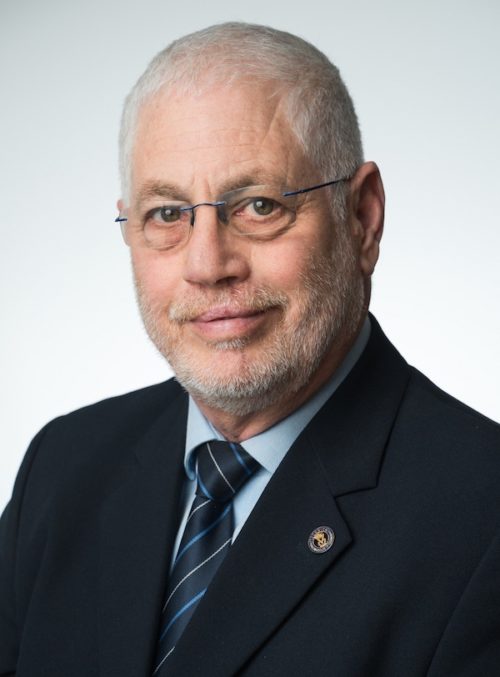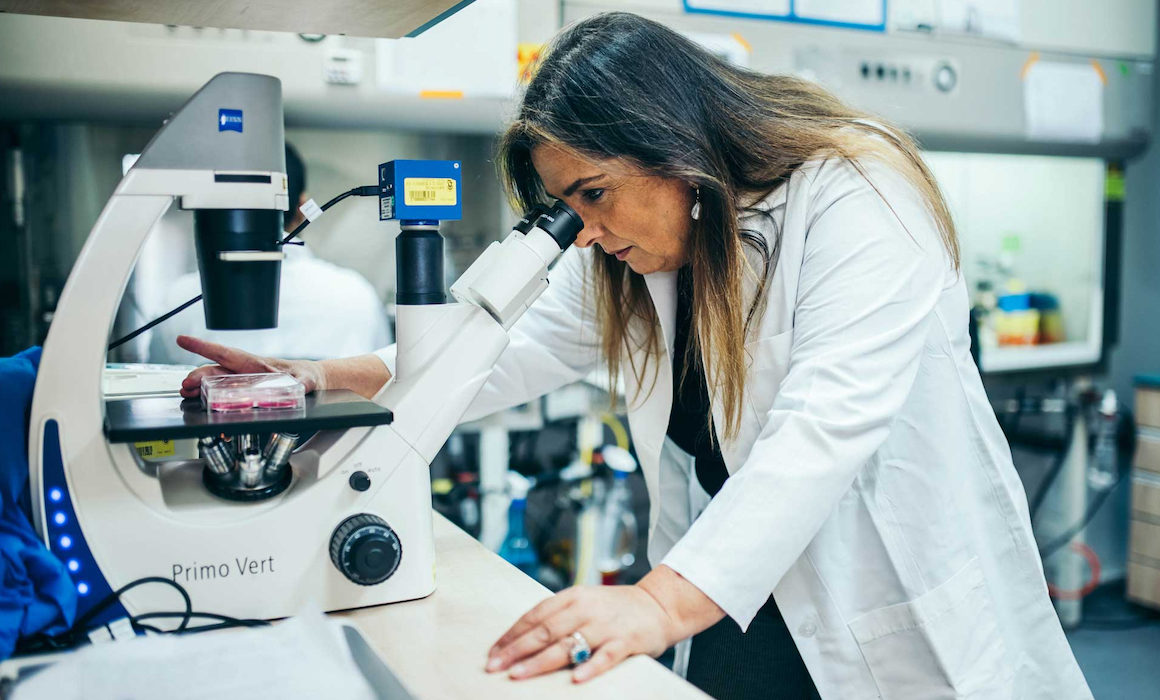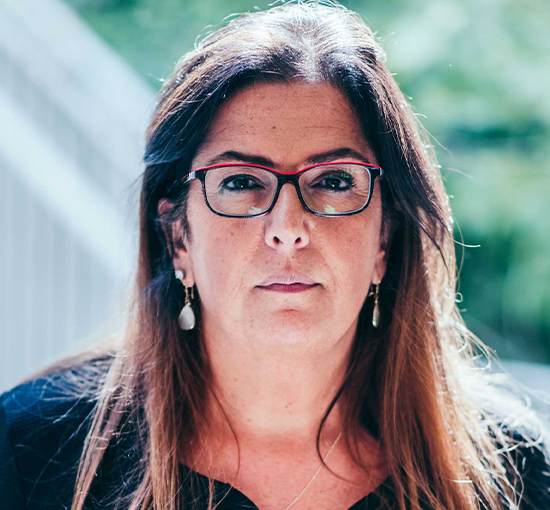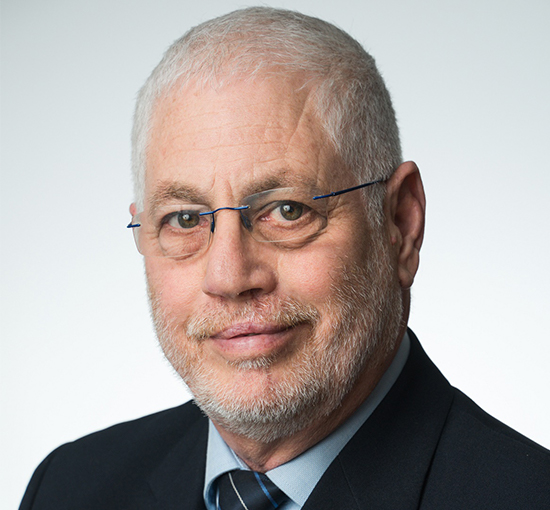Pictured Above / Professor Marcelle Machluf, dean of the Technion Faculty of Biotechnology and Food Engineering.
Israel’s food sector is a $20 billion business, representing 5% of the country’s GDP. Yet lack of capital, stagnating innovation, and rapidly changing consumer demands threaten to erode this success.
The new Carasso FoodTech Innovation Center, part of the Faculty of Biotechnology and Food Engineering’s Bio-Health Technology Innovation Initiative, aims to tackle these unanswered challenges. The Center will develop sustainable ways to supply a healthy, tasty, and nutritious diet to a growing world population, while growing Israel’s food sector.
“We overfish, overgrow, and overuse our resources,” said Professor Ester Segal, head of the Laboratory for Multifunctional Nanomaterials. “Why? Because about one-third of the food being produced now is being thrown away without being used. We have to find means to maintain our resources and minimize food waste,” added Segal, who is developing antimicrobial packaging that gradually releases compounds into the food that kill harmful bacteria.
Prof. Segal, along with Professors Marcelle Machluf and Uri Lesmes spoke in February 2022 at a Live From Technion webinar, “Feeding the Future: Technion’s Ingenious Approach to Sustainable Food Tech.” You may access the recording here.
The Center will be housed in what was previously the Food Industries Center. The expanded and upgraded building will be one of its kind in Israel and one of the most advanced in the world; it will feature an R&D center for industrial production, a packaging laboratory, an industrial kitchen, as well as tasting and evaluation units that will be used for teaching and research in the Faculty of Biotechnology and Food Engineering. The Carasso FoodTech Innovation Center will be housed in an existing, dedicated structure alongside the faculty, and will include a visitor area that will expose high school students to the world of foodtech, and serve as a hub for startups, where they can benefit from R&D services.
Professor Marcelle Machluf, dean of the Faculty of Biotechnology and Food Engineering at the Technion, said, “the faculty is one of the only ones in the world that combines the disciplines of bioengineering, technology, food sciences, and life sciences. Coping with the COVID-19 pandemic has only emphasized the importance of food and biotechnology in maintaining our existence and meeting future existential challenges.”
“To address the many challenges in this field, including access to healthy, affordable food and innovative medical treatments, we need advanced infrastructure that will enable the integration of new engineering and scientific tools; these will enable us to develop the necessary technologies, as well as the infrastructure and equipment that will support the development and assimilation of the knowledge required to tackle tomorrow’s food challenges.”

Uri Sivan, president of the Technion.
Strengthening Israel’s Economy, Feeding the World
The Center is expected to grow Israel’s GDP and export-based economy, employing tens of thousands of workers in the process, by:
- Helping existing companies to modernize and become more competitive in a changing market environment;
- Strengthening agtech startups that can advance innovations related to greener production processes, healthier foods, and new products;
- Attracting significant additional revenue from investors, companies, government, and NGOs to strengthen the entire industry; and,
- Demonstrating the positive impact that Israel has on humanity via healthier, safer, and more sustainably produced food offerings.
In addition to supporting Israel’s economic prosperity, the Center also represents a significant contribution to the world’s food security.
“Eradicating world hunger and improving food security are among the main challenges facing humanity in the 21st century, as defined by the UN’s Sustainable Development Goals,” said Technion President Professor Uri Sivan. “The Technion has the only faculty in Israel for research in food engineering, a faculty that leads the Israeli foodtech industry.”
With the global population expected to grow to nearly 9.8 billion people by 2050, innovative approaches like the ones happening at the Center every day are essential for helping us feed and nourish a hungry world.
“What we need to strive for is to offer safe, nutritious, and affordable options for the future,” said Professor Uri Lesmes, head of the Technion’s Lab of Food Chemistry & Bioactives, whose innovative solutions include the use of protein-rich silkworms to develop an alternative ice cream.
A Lifelong Passion for the Technion
The Center is made possible by the generosity of the Carasso Family and Carasso Motors, a multigenerational initiative reflecting the family’s passion for Zionism, excellence in science education, closing gaps in the Israeli society, and investment in infrastructure.
Yoel Carasso, Chairman of Carasso Motors, said, “In 1924, our Grandfather Moshe immigrated with his family to Israel from Thessaloniki, where he was one of the leaders of the Jewish community. For me and for my uncle Shlomo and my cousins – Ioni, Orli, Sarah, Tzipa, and Arik – this is coming full circle from a century ago. We chose to support the Carasso FoodTech Innovation Center since the Technion is synonymous with excellence. The Technion is an engine for combining basic and applied science in the Galilee and in Israel as a whole. We believe the Carasso FoodTech Innovation Center will contribute to the industry, and to collaborative work in this field, and thus strengthen the Israeli economy and society.”


